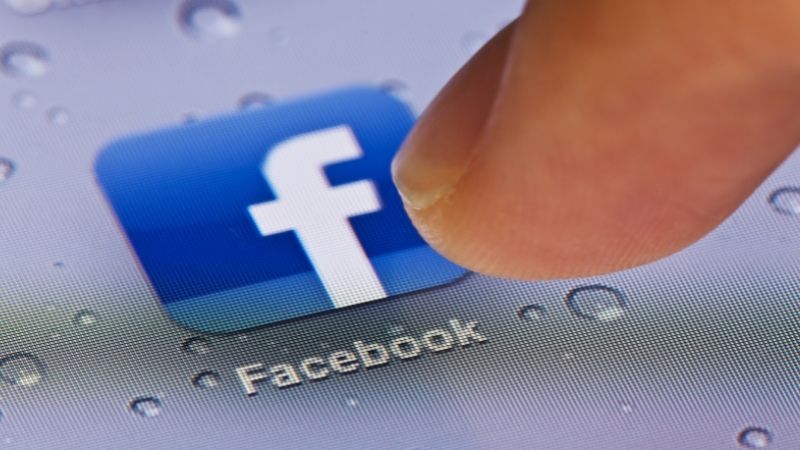Facebook Defamation in UAE – With the arising of technology and connections such as the Internet and smartphones, social media platforms have emerged which have a lot of benefits, however, it has a side dark which can harm people’s reparations, emotional, and mental health.
Millions of people have been pulled to Facebook since its launch to interact, exchange photos, and update friends. As a result, it has given people a platform to share knowledge in a manner they may not have otherwise thought of.
While uploading information on Facebook may provide users a sense of anonymity, particularly if their profile does not accurately reflect who they really are, doing so may also give rise to legal action.
Read More About: Disclosure of Private Work Data in the United Arab Emirates
The Facebook defamation law in UAE
Defamation in Dubai is a criminal offense in the UAE’s law, including on social media platforms such as Facebook, Instagram, and Tiktok. Under the UAE Penal Code, anyone who publishes, via any means of publicity, anything that would harm the reputation, prestige, or dignity of another person shall be punished with imprisonment and a fine. The UAE defamation law also considers defamatory statements made in jest, by implication, or by insinuation to be punishable offenses.
Furthermore, the UAE Cybercrime Law, Federal Law No. 5 of 2012, provides additional provisions related to cyber defamation, including imposing stricter penalties for online defamation. The law states that anyone who uses a computer network to insult, abuse, libel, slander, or defame another person shall be punished with imprisonment and/or a fine of up to AED 500,000.
If you are a victim of Facebook defamation in UAE, you can report it to the Dubai Police Cyber Crime Department. They have a website where you can report cybercrimes, including defamation. Provide evidence to support your claim. You may also want to consider consulting with a legal professional to understand your legal rights and options.

What is the difference between defamation, slander, and libel on social media?
Defamation on social media is when someone says anything about another person that is unjust, inaccurate, and likely to damage their reputation or character.
Defamation includes subtypes such as libel and slander. Libel on social media refers to assertions that are made permanently that are false. This may be a YouTube video or a tweet on Twitter in terms of social media.
Slander on social media comes when someone speaks negatively about another person. It might be argued that you cannot defame someone online since remarks posted online are permanent and considered publications. Even “temporary” social media content may be saved and shared, like Instagram or Facebook stories.
What are the consequences of Facebook defamation in the UAE?
According to UAE law, any defamatory comments or statements posted on social media platforms including WhatsApp, Facebook, Instagram, TikTok, and Twitter, as well as through other digital platforms like SMS, email, and websites, may also be in violation of the Cybercrimes Law in UAE.
Article 43 of Federal Decree-Law No. 34 of 2021 on combating cybercrimes states that it is illegal to insult someone or accuse them of false statements that might hurt their reputation or lead to others treating them with disdain. It is punished by a jail term of between 250,000 and 500,000 dirhams and/or a fine.
In fact, since the UAE’s new cybercrime legislation applies to all forms of digital communications, private and even group conversations are not necessarily exempt from the law.
Also, it’s against the law to spread rumors or false information online if it provokes public contempt for the authorities or is uploaded at a crucial moment (such as during an emergency, public disaster, epidemic, etc.)
How do you deal with defamation, libel, and slander on Social Media?
Dealing with defamation, libel, and slander on social media in Dubai may require additional steps due to local laws and regulations. Here are some guidelines to follow:
1- Know the laws
It’s important to understand the defamation laws in Dubai, as they are stricter than in many other countries. Defamation, libel, and slander can result in criminal charges, fines, and imprisonment. Therefore, it’s crucial to consult with a legal professional who is knowledgeable about UAE laws.
2- Report to the authorities
In Dubai, defamatory content on social media can be reported to the Dubai Police Cyber Crime Department. They have a website where you can report cybercrimes, including defamation, libel, cyberbullying, and slander. Provide as much evidence as possible to support your claim.
3- Consider legal action
If the defamatory content is causing significant damage to your reputation or business, you may want to consider taking legal action. Consult with a lawyer who can advise you on the best course of action.
4- Respond appropriately
It’s essential to respond appropriately to any defamatory content to minimize the damage. Avoid responding aggressively or impulsively. Instead, respond calmly and professionally and take legal action if necessary.
5- Seek support
Dealing with defamation, libel, or slander can be emotionally challenging. Seek support from friends, family, or a mental health professional if needed.
Remember that dealing with defamation, libel, and slander on social media in Dubai can be complex, so it’s crucial to seek legal advice and follow the local laws and regulations.
Learn More About: Lift Work Ban (Labour Ban) & Ownership Transfer in United Arab Emirates
Frequently Asked Questions about defamation on social media in UAE

1- What is Facebook defamation in Dubai?
Facebook defamation is when someone posts defamatory content about an individual or business on Facebook.
2- Is Facebook defamation illegal in the UAE?
Yes, defamation is a criminal offense in the UAE, including on Facebook. Defamatory content can result in criminal charges, fines, and imprisonment.
3- What should I do if I am a victim of Facebook defamation in the UAE?
If you are a victim of Facebook defamation in UAE, you can report it to the Dubai Police Cyber Crime Department. Provide evidence to support your claim. You may also want to consider consulting with a legal professional.
4- Can I sue someone for Facebook defamation in UAE?
according to UAE defamation law, you can sue someone for Facebook defamation in UAE. However, it’s important to consult with a legal professional to understand the process and legal implications.
Speak to our social media defamation lawyers in UAE
Khairallah Advocates & Legal Consultants in Dubai and Abu Dhabi have numerous success stories that would make them proud with their work due to top expert lawyers in Dubai.
Abdultaiyab Bahrainwala is one of our best lawyers in defamation on social media cases. he is LLM, LLB advises on all aspects of UAE Property Laws, Commercial Laws, Corporate Laws, Labour Laws, Banking Laws, and Family Laws. He proved to be one of the top lawyers in UAE.
Furthermore, he holds an LLM Degree in International Business Law from the National University of Singapore jointly conducted in Singapore and Shanghai. During his post-graduation, he has specialized in International Business Law by reading courses on Banking & International Payments, Comparative Corporate Governance, Cross-Border Transactions & Transnational Commercial Law, International Law, Comparative Corporations Law, International Public Monetary Payment & Settlements System Law, Choice of Law for International Commercial Contracts and International & Commercial Trusts Law.




My photo and my name used to another Facebook account